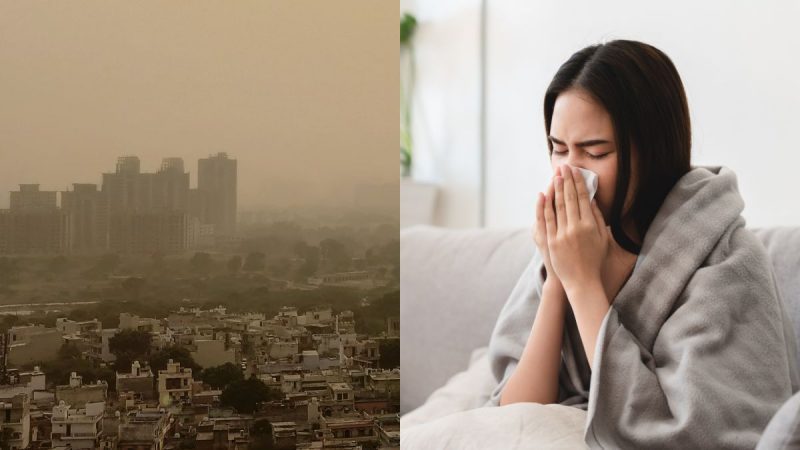After several days, Delhi’s air quality index (AQI) improved from ‘severe-plus’ levels to ‘very poor’. While this has provided some relief in the city, the poor air quality has triggered respiratory ailments in healthy individuals and severely impacted those with pre-existing health conditions. One of the most prevalent health issues observed in Delhi-NCR right now is walking pneumonia. Scroll on to learn more about this disease.
Delhi’s Worsening Air Quality And Rise In Walking Pneumonia Cases
Delhi’s poor air quality has caused a surge in respiratory ailments in the city. According to NDTV, hospitals in and around Delhi have observed a spike in patients with respiratory ailments linked to severe air pollution in the city. They have noticed a significant rise in cases of ‘walking pneumonia’ as well. The poor air quality and thick toxic smog are considered a major cause of this.
Reportedly, walking pneumonia is a less severe form of pneumonia and is caused by bacteria called mycoplasma pneumoniae. The bacteria damages the lining of the respiratory tract, including the throat, windpipe, and lungs and causes mild infections that can sometimes be serious. Fortunately, walking pneumonia does not require bed rest or hospitalisation, unless serious.
Also Read: Amid Rise In Air Pollution, Delhi Metro Records Highest-Ever Daily Footfall Of 78.67 Lakh Passengers
Symptoms And How It Spreads
Walking pneumonia’s symptoms are very similar to flu. So, if you are facing the following symptoms, then it’s best to consult a doctor. It can be diagnosed through physical examination or an X-ray.
1. Cough
2. Fever
3. Sore throat
4. Headache
5. Runny nose
6. Ear pain
7. Chest pain from coughing
8. Breathing difficulties
It is to be noted that walking pneumonia is contagious. It can easily spread from an infected person’s coughs or sneezes. Respiratory droplets released while coughing or sneezing can spread when inhaled by others.
While the air is getting better in Delhi, it is still not good for your health. If you have respiratory issues, it is best to avoid venturing out, unless necessary. In general, it is best to stay indoors for now as the toxic air can harm your body.
Cover Image Courtesy: Canva (representative image)
For more such snackable content, interesting discoveries and the latest updates on food, travel and experiences in your city, download the Curly Tales App. Download HERE.
